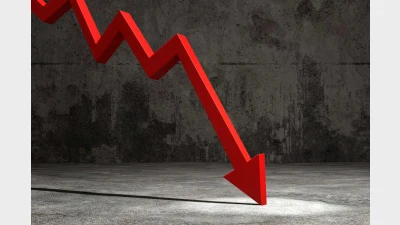Super returns retreat in September amid ‘nervous’ investment markets



Although the return for the first nine months of the 2023 calendar year sits at 5.2 per cent, all four risk category fund options saw lacklustre September performance, according to Chant West.
The growth option (61 to 80 per cent growth assets) saw a decline of 1.9 per cent while the balanced option (41 to 60 per cent growth assets) fell 1.4 per cent.
The greatest decline was seen in the all-growth option (96-100 per cent growth assets) of 2.7 per cent, followed by the high growth (81 to 95 growth assets) of 2.2 per cent.
The conservative option (21 to 40 per cent growth assets) fell by 1 per cent.
It was a different result from the previous month where the balanced and conservative options persevere to return 0.1 per cent and 0.2 per cent respectively even as the growth options were down.
According to Chant West, super funds retreated in the last month as investment markets reacted nervously to the prospect of a sustained period of higher interest rates.
Mano Mohankumar, Chant West senior investment research manager, noted that both share and bond markets were down in September.
Australian shares were down 2.9 per cent for the month while developed market international shares fell 3.7 per cent and 4 per cent in hedged and unhedged terms, respectively.
Mohankumar added: “Emerging markets shares were down 2.3 per cent, Australian bonds fell 1.5 per cent while international bonds fell 1.8 per cent as bond yields rose materially over the month.
“However, it’s important for super fund members to remember that the majority are invested in portfolios that are diversified well beyond those asset classes, with exposures to cash and meaningful allocations to alternatives and unlisted assets.”
That diversification helped limit the median growth fund’s loss to 1.9 per cent over the month, he explained.
Mohankumar also observed that nearly all major developed markets were down in September.
“In the US, economic growth remained resilient and while inflation is generally on a downward trend, it remains high. Although the US Federal Reserve kept rates on hold at its September meeting, it expects policy settings to remain restrictive for some time until it’s convinced that inflation is heading back towards its target,” he said.
Meanwhile, the Bank of England also kept rates on hold in September after 14 rises since the end of 2021.
The European Central Bank raised rates by 0.25 per cent at its last meeting but signalled that its 10th hike in a 14-month-long effort to bring down inflation may be its last.
In Australia, the RBA kept interest rates on hold at 4.1 per cent for the fourth consecutive month at the first meeting chaired by new governor, Michele Bullock.
However, it wasn’t all gloom and doom amid the current uncertain economic and political backdrop, Mohankumar pointed out.
“Despite the challenging backdrop over the past three-and-a-half years, the median growth fund is about 17 per cent above the pre-COVID high that was reached at the end of January 2020. More importantly, funds are continuing to meet their long-term return and risk objectives,” he said.
Recommended for you
Governor Bullock took a more hawkish stance on Tuesday, raising concerns over Trump’s escalating tariffs, which sent economists in different directions with their predictions.
Equity Trustees has announced the appointment of Jocelyn Furlan to the Superannuation Limited (ETSL) and HTFS Nominees Pty Ltd (HTFS) boards, which have oversight of one of the companies’ fastest growing trustee services.
Following growing criticism of the superannuation industry’s influence on capital markets and its increasing exposure to private assets, as well as regulators’ concerns about potential risks to financial stability, ASFA has released new research pushing back on these narratives.
A US-based infrastructure specialist has welcomed the $93 billion fund as a cornerstone investor.













